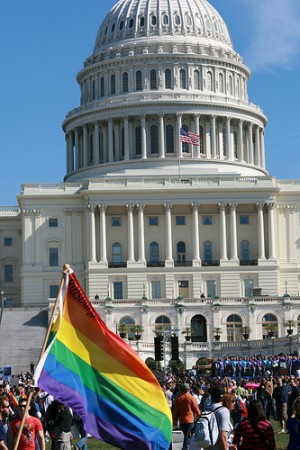Black and Transgendered? Double the Suffering.
Tyra Hunter was a popular African American hair stylist in Washington, D.C. In 1995, she was in a serious car accident at 50th and C Streets SE. The emergency personnel who arrived on scene started to rescue her, but they stopped abruptly; instead of providing Hunter with aid, they mocked her. When she finally reached a hospital, Doctors didn’t help her, either.
Sounds outrageous, right? It was. Hunter’s mother sued the city for negligence and malpractice– and won $2.8 million.
At this point, you might be wondering– “Why would EMTs and Doctors withhold care from an accident victim?”
Well, Hunter was transgendered. According to Monica Roberts of The TransGriot, when firefighters discovered that fact after cutting through her clothing, they discontinued care and insulted her.
A firefighter) began joking with the other fire department personnel at the scene as the bystanders pleaded with them to resume working to save Tyra’s life. One bystander is quoted as saying, “It don’t make any difference, he’s [sic] a person, he’s a human being.”
Indeed. I first learned about this appalling case via Colorlines, which “has been building a home for journalism in service to racial justice since 1998″. In their recent article, “Still No Freedom Rainbow for Transgender People of Color”, Hunter’s memory was invoked to demonstrate how little progress has been made:
The fact is that transgender people—in particular, transgender people of color—have simply not experienced the same strides forward as their lesbian, gay and bisexual brothers and sisters. A landmark new report, “Injustice at Every Turn,” presents undeniable proof. This report, released on Friday, is based on a comprehensive survey of over 6,000 transgender people and the findings are too shocking to ignore, especially when it comes to African-American transgender people.
Our transgender brothers and sisters are far more likely to lack proper medical care, to be unemployed, to live in extreme poverty, and to be HIV-positive—and that’s when compared to their white transgender counterparts, not just the general population. The survey’s respondents were four times more likely than the general population to live in extreme poverty. One in five reported having been refused a home or apartment, another one in five report having been refused health care. More than one in five, 22 percent, reported having been harassed by law enforcement, and nearly half reported fear of seeking assistance from police. African American respondents reported all of this in even higher numbers.
Colorlines goes on to connect the dots:
There is clearly an intersection between a broader, structural racism throughout our society and the pervasive prejudice against transgender people. For instance, because black transgender people tend to start out from a position of greater poverty than their white counterparts, they all too often have no strong safety net to support them if they come out and are rejected by their families. As a result, many black transgender people wind up on the streets, too often trading sex for physical, or emotional, survival. So no wonder that black transgender people in the survey reported a rate of HIV infection over 41 times higher than the national average (for comparison, the total respondent pool reported a rate of “only” four times the national average).
Finally, if you think Tyra Hunter would be treated with more compassion today, more than 15 years after her death, a commenter’s reaction to the Colorlines piece proves depressingly otherwise:
unfortunately, having been around EMS workers for awhile, I can see Tyra Hunter’s ordeal happening today. I remember about a year ago reading about a trans woman on facebook who was coughing up blood (a symptom of a pulmonary embolism, a blood clot in the lung, which is pretty serious, because it restricts the O2/CO2 exchange), who was asked about her history of “transvestitism” rather than having a meaningful medical history taken. Hopefully, being that I’m a trans woman training to be a paramedic, I can make a change for the better on that front in my community.
-
Anonymous
-
guest
-
http://twitter.com/tonidnewman TONI NEWMAN






